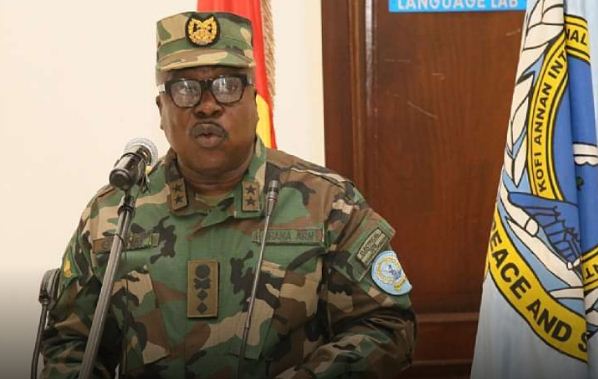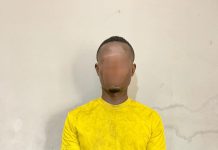Major General Richard Addo Gyane, Commandant of the Kofi Annan International Peacekeeping Training Centre (KAIPTC), has underscored the critical need for continued vigilance in safeguarding peace and democracy in Ghana and the entire African continent.
Speaking at a security symposium themed: “Protecting the Ballot: Deepening Democracy,” in Accra recently, General Gyane emphasised the evolving security architecture and the need for a collective effort to sustain the West Africa region’s democratic gains.
Major General Gyane reflected on Ghana’s journey to becoming a model of democratic stability, lauding the resilience of its institutions and people.
“Ghana’s transition from a troubled political past to a beacon of democracy in Africa has been deliberate and hard-earned,” he said, noting that since the Fourth Republic in 1992, the country has conducted eight elections, involving peaceful transfers of power.
Touching on the broader West African context, Major General Gyane noted the persistent challenges such as political instability, demographic shifts, and threats posed by state and non-state actors.
“Peace in this region remains fragile and must not be taken for granted,” he cautioned, urging continuous efforts to evaluate and mitigate the impacts of governance challenges and security threats.
He emphasised Ghana’s contributions to peacekeeping and mediation efforts in the region, including its leadership in ECOWAS interventions in Mali.
“Our export of peace and security expertise underscores Ghana’s commitment to democracy on the continent,” he stated.
With Ghana set to hold its ninth general elections on December 7, 2024 Major General Gyane urged all stakeholders to prioritise peace and credibility in the electoral process.
He warned of the dangers posed by misinformation, disinformation and heightened political tensions, stressing that these could undermine democratic structures.
“The rising trend of misinformation has hindered informed decision-making among some citizens, increasing the risk of electoral violence,” he observed, while calling on institutions like the Electoral Commission (EC), the National Commission for Civic Education (NCCE) and the Ghana Police Service to remain proactive and transparent.
Major General Gyane expressed hope that Ghana would uphold its democratic structures, resisting any actions that might undermine peace and stability.
“Security is not just the responsibility of the military or police – it is a collective choice made by citizens committed to giving peace a chance,” he affirmed.
The symposium, held at KAIPTC, brought together experts and representatives from various sectors to discuss strategies for ensuring peaceful elections.
Rev. Dr. Fred Deegbe, Co-Chair of CODEO, stressed that while irregularities like vote-buying and the distribution of campaign merchandise are concerning, they are unlikely to significantly alter election outcomes.
He emphasised the importance of election observers in reporting criminal activities and ensuring a fair voting process.
“The priority must be a free, fair and credible election where voters can freely express their preferences,” he said.
Mr Serigne Mamadou Ka, Acting Head of ECOWAS Electoral Assistance Division, detailed ECOWAS protocols for election observation, noting their dual roles in assessing election preparedness and preventing conflicts.
He suggested strengthening of ECOWAS capacity for longer-term observation missions, enhancing enforcement of recommendations, and expanding mediation efforts.
“Post-election follow-ups are crucial to ensure implementation of recommendations and to address lingering tensions,” he added.
ACP Al-Meyao Abass Kwarasey, Director of Operations at the Ghana Police Headquarters, outlined the National Election Security Task Force’s proactive engagements with stakeholders.
Led by the Inspector General of Police, the task force has been meeting with political parties and engaging communities in churches and mosques to promote peace.
“Our goal is to foster cooperation among all stakeholders to maintain peace and allow the people’s voice to be heard,” he stated.
Discussions emphasised the importance of stakeholder collaboration, robust election security measures and public education to counter misinformation.








